
Pin en Clase de inglés
Photo: Leila Danai/Instagram. A 4-year-old girl from Florida has gone viral on TikTok after her mom posted a video of her telling the story of how a boy in her class didn't like her natural hair.
B1 MEETING POINT EXPRESSING LIKES AND DISLIKES
Don't is a contraction of do not. You can say: I don't like snakes. OR. I do not like snakes. Contractions are very common in spoken English. More examples of negative sentences with don't like: I don't like windy days.
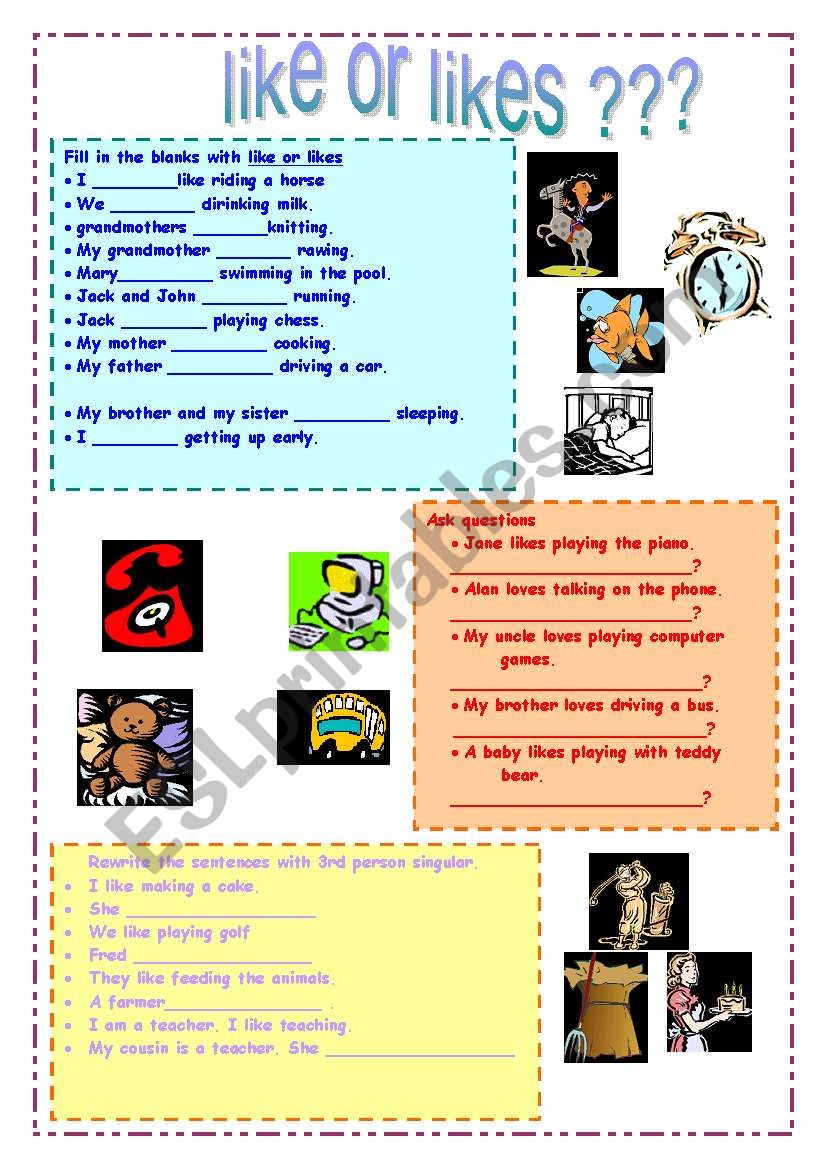
like or likes??? ESL worksheet by elif_hun
Why do we say I like and not I likes? what is the english rule/explanation for this? Loob Senior Member English UK Dec 9, 2013 #2 Hello, bree2 - welcome to the forums We say "I like" and not "I likes" because in standard English -s is the marker of the third person singular, present tense. dreamlike Senior Member Poland Polish Dec 9, 2013 #3
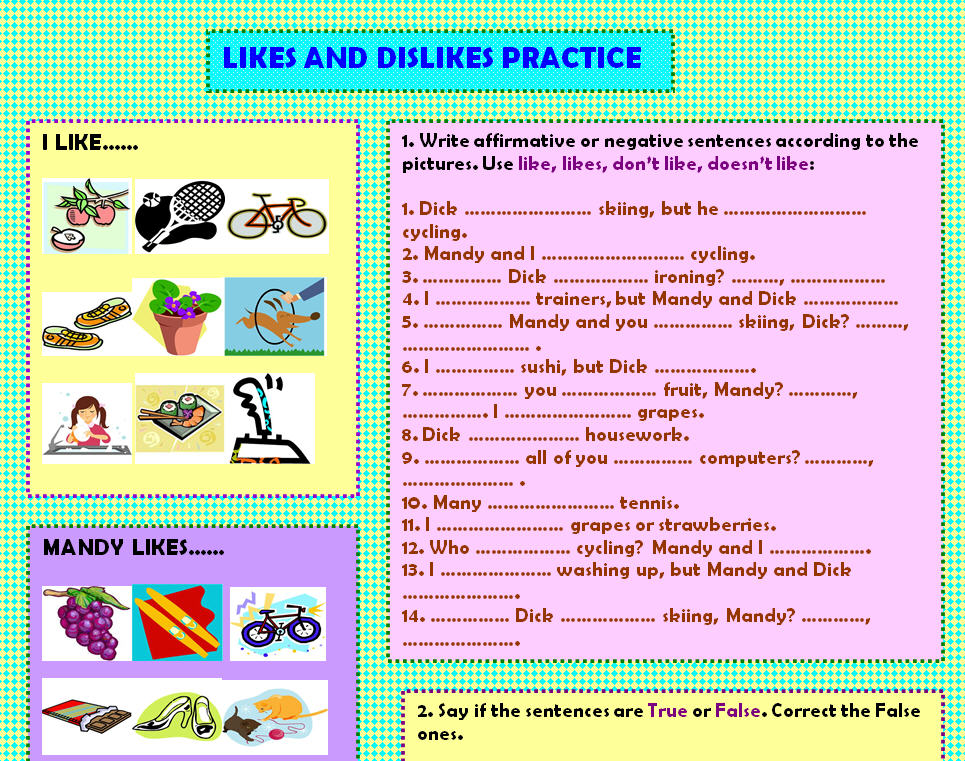
Likes & Dislikes Practice
Tip: See my list of the Most Common Mistakes in English.It will teach you how to avoid mistakes with commas, prepositions, irregular verbs, and much more. Both "like more" and "like better" (as in the sentence "I like apples more/better than oranges") are widespread, but "like more" is usually considered more formal and "like

How to Express Likes and Dislikes in English English Study Online
Like - English Grammar Today - a reference to written and spoken English grammar and usage - Cambridge Dictionary
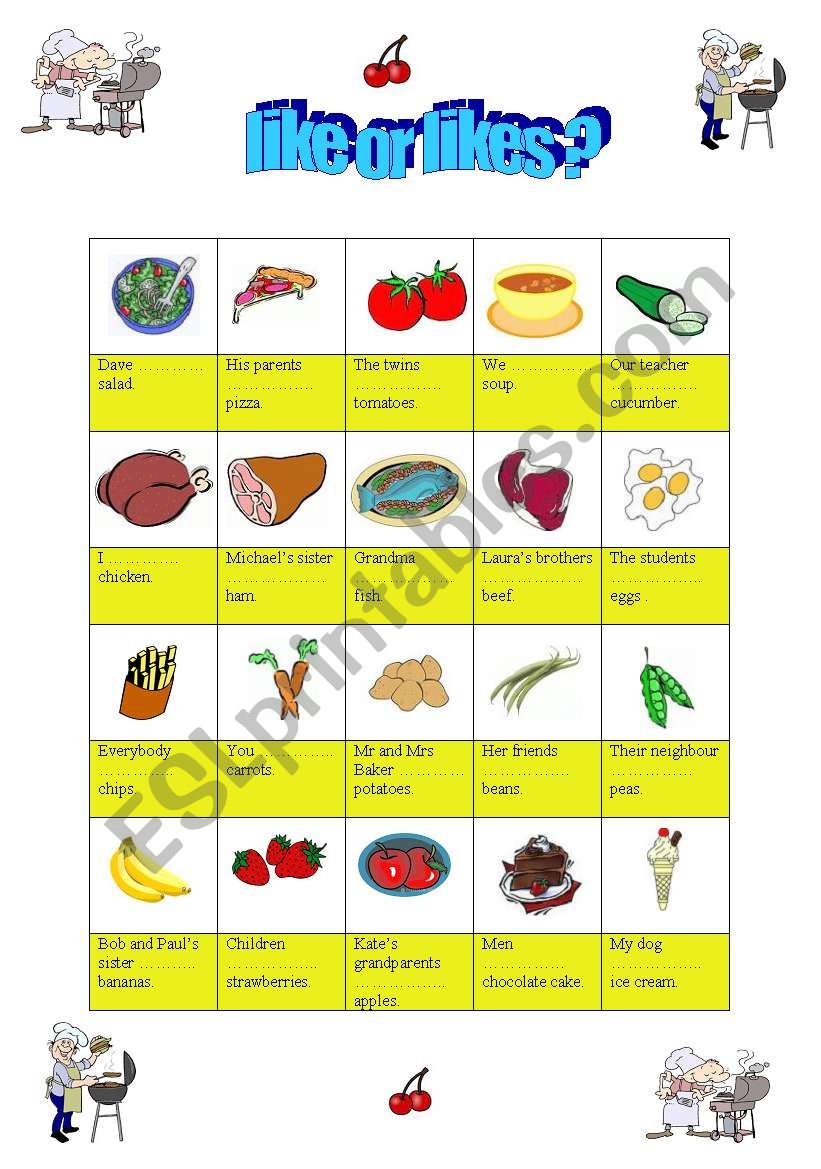
like or likes? ESL worksheet by kewgarden
The Platte City resident started making snow art in 6th grade and has been perfecting it ever since. "I didn't usually stick with regular old snowmen," the artists said. Nope, she has plenty of.

Likes and Dislikes (Verbs) Likes y dislikes, Clase de inglés, Actividades de ingles
For example: I am a fan of skateboarding. 6. I am interested in it. This expression means "to like; to be attracted to.". For example: I am interested in writing articles about marketing. 7. I am into it. The last phrase to express a preference on our list means "to like; to enjoy.". For example: I am into Mark.
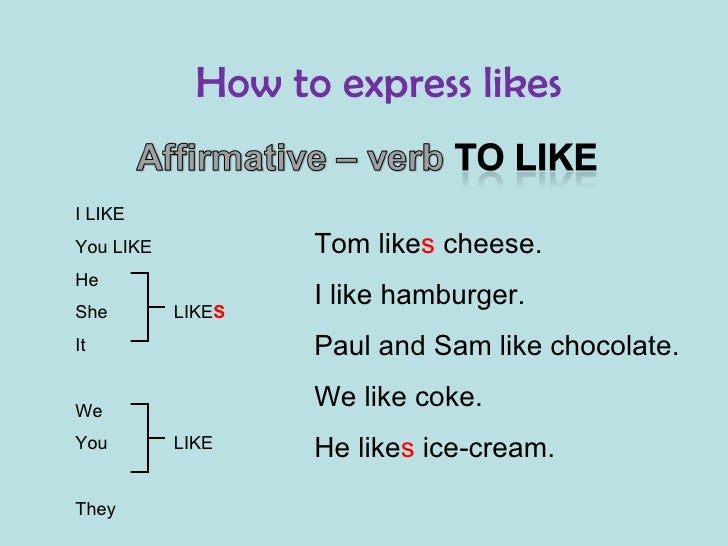
Expressing likes and dislikes
The Friends cast gets reimagined in Pixar-style art, and Chandler Bing looks like he belongs on Mad Men.Aired from 1994 to 2004, the iconic sitcom famously follows the personal and professional lives of six friends - Rachel (Jennifer Aniston), Monica (Courteney Cox), Phoebe (Lisa Kudrow), Joey (Matt LeBlanc), Chandler (Matthew Perry), and Ross (David Schwimmer) - living in New York City.
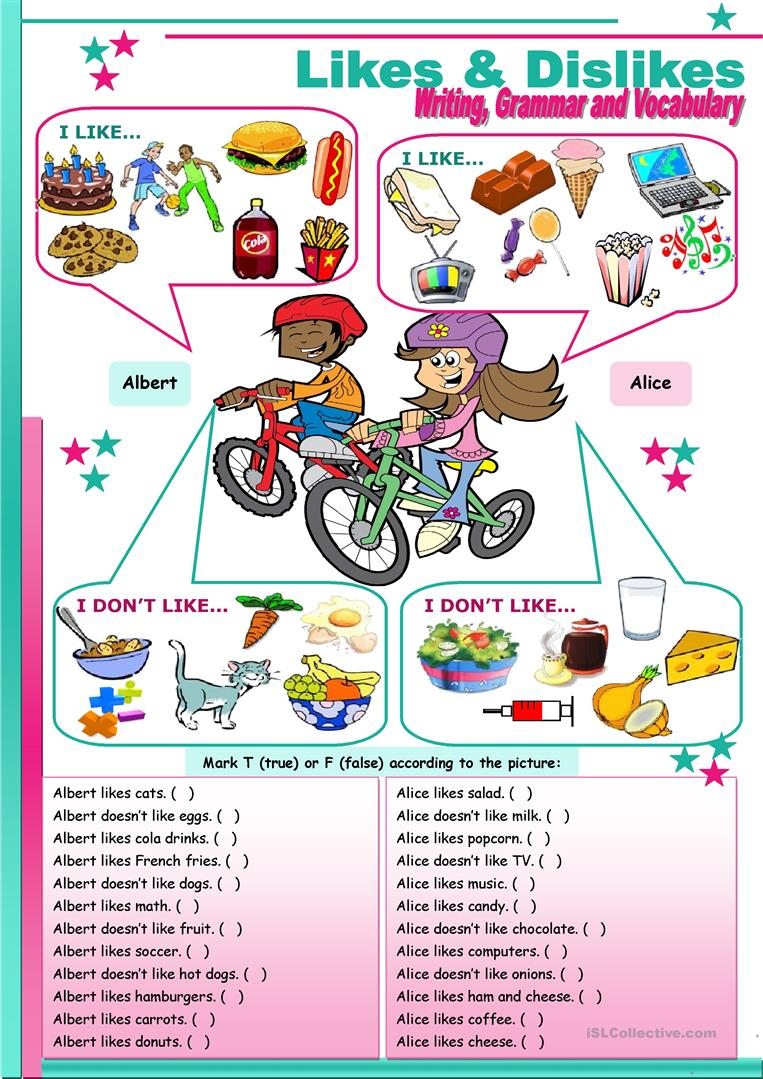
Likes And Dislikes Worksheets Printable Lexia's Blog
Think gerund, think chocolate, because they are interchangeable. I like chocolate, and I like writing share the same meaning. Verbs such as adore, detest, dislike, enjoy, don't mind, and loathe, or phrasal verbs like keen on, can't stand, wild about, or fond of, always use the gerund that is similar to a noun. I enjoy writing. I enjoy wine.
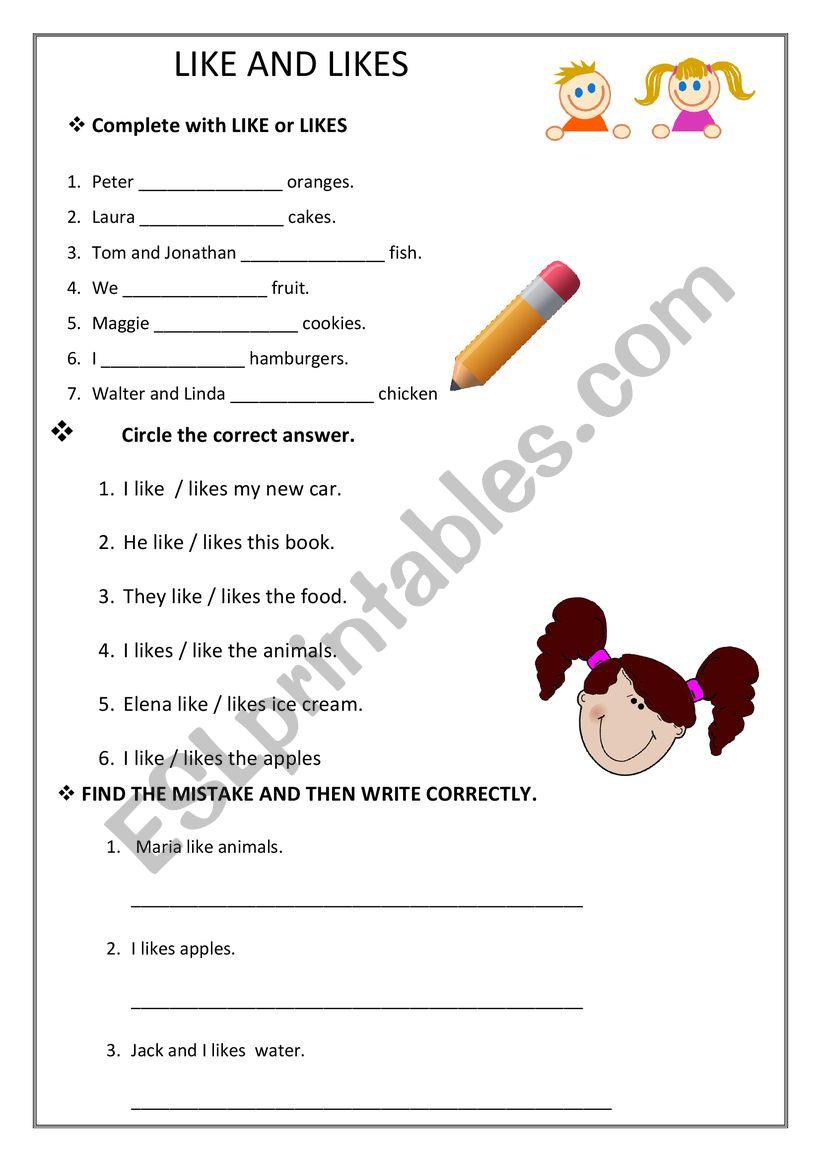
LIKE OR LIKES ESL worksheet by YaniLau
With some of these verbs, the choice of gerund versus infinitive can make little or no difference in meaning: "She likes skating" versus "She likes to skate." But with some other two-way verbs, the choice can make a marked difference. The verb "try" is a good example of the latter. It can take both complements: "He tried skating
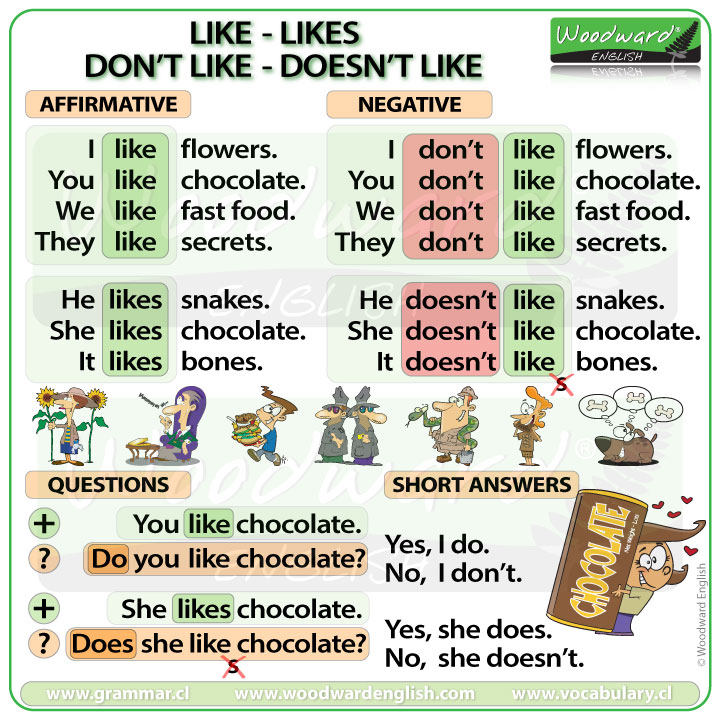
English with pleasure 3 клас
These are some negative sentences using like and the simple present: I don't like to play soccer. I don't like horror movies. She doesn't like to eat vegetables. She doesn't like spending time with me. He doesn't like to go to the beach. He doesn't like to lift weights. We don't like to watch action movies. We don't like to go.

Read and Complete Likes and Dislikes English Language, ESL, EFL, Learn English, Vocabulary
"I'd like" stands for "I would like." Would is modal verb and we often use it, well we can use it for imaginary situations, but in this case, we use it to express a little more politeness. "I'd like" is another way to say, "I want." And this is used when you want something specific in that moment or in the future.
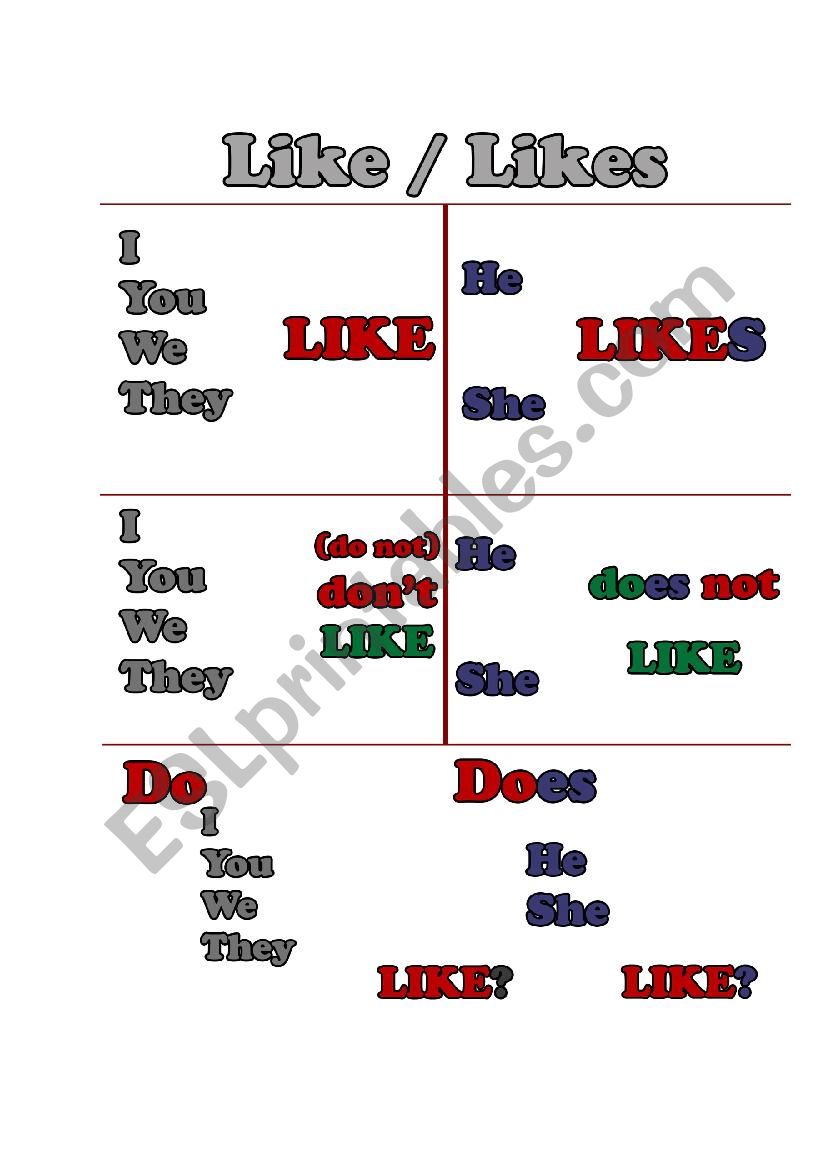
Verb Like Likes ESL worksheet by AlexMilan
"I like eating the apple" means you are currently in the process of eating a particular apple and you like eating namely this particular apple or, which is most unlikely and funny you eat a particular apple from time to time (you like eating this apple)
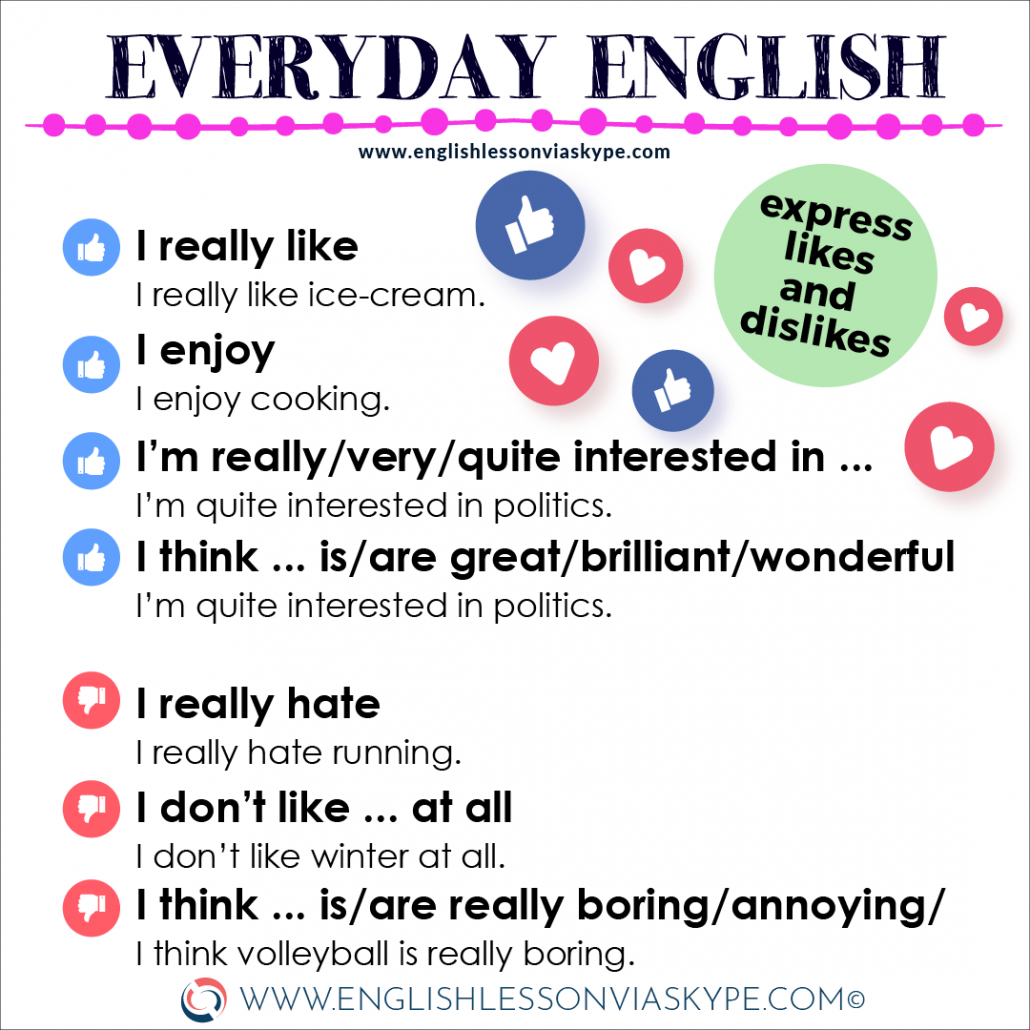
Expressing Likes and Dislikes in English Learn English with Harry 👴
How do I use "like" vs "likes" in speech and sentences? Ask Question Asked 8 years ago Modified 5 years, 9 months ago Viewed 65k times 0 I'm a bit confused with the usage of this word. Sometimes I see it with an 's' and other times there isn't one. How do I use this word properly in a sentence both oral and written? eg. Henry ' likes ' ice-cream.
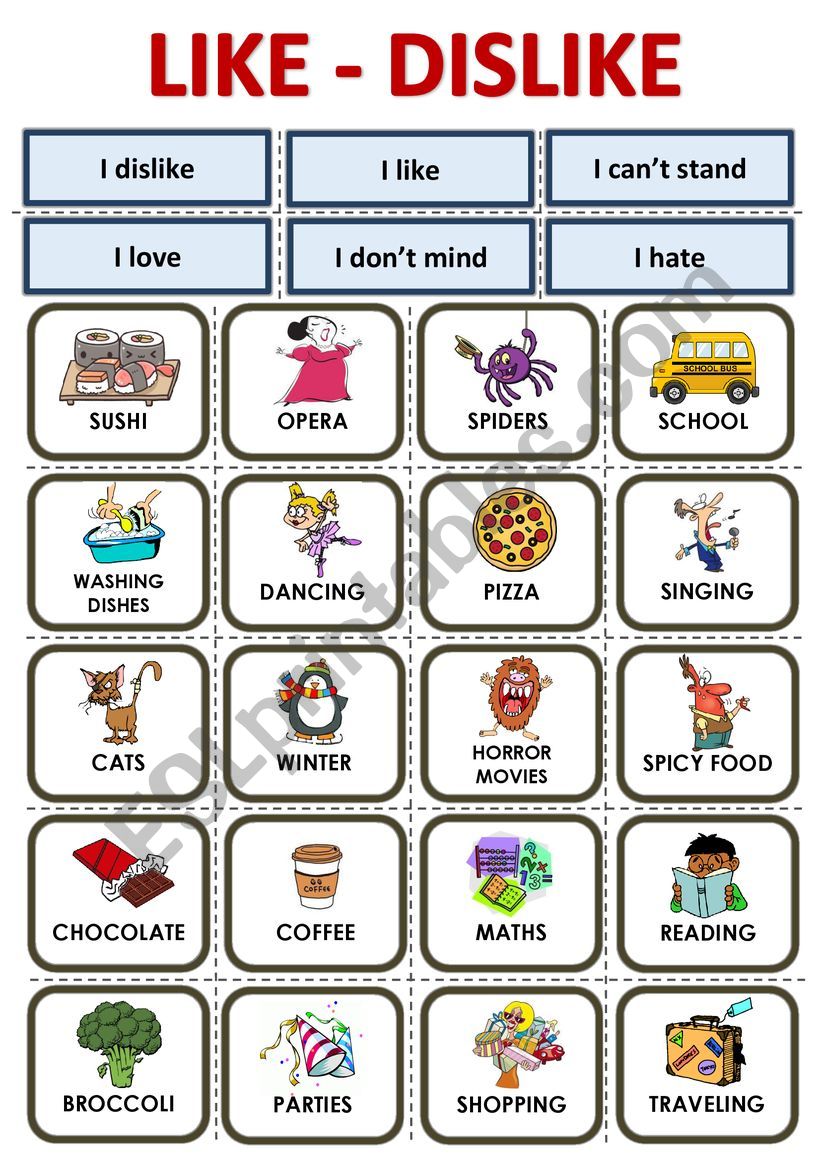
Likes and dislikes ESL worksheet by Fulati
"sports" because you're talking about sports in general and not any specific sport. When we talk about things in general, we tend to use the plural version of the word. I like dogs. I like movies. I think the reason we use the plural word is because there exists more than one sport, there exists more than one dog, there exists more than one movie, etc. We use the singular version when we're.

Likes and dislikes English ESL worksheets pdf & doc
0 I received this question from a non-native English speaker and was not sure how to answer it. We can see that the noun "like", when used with pronouns, can be defined in singular and plural as: like = I, we, you, they ("I like running", "We like running". etc) likes = He, she, it ("He likes running". etc)